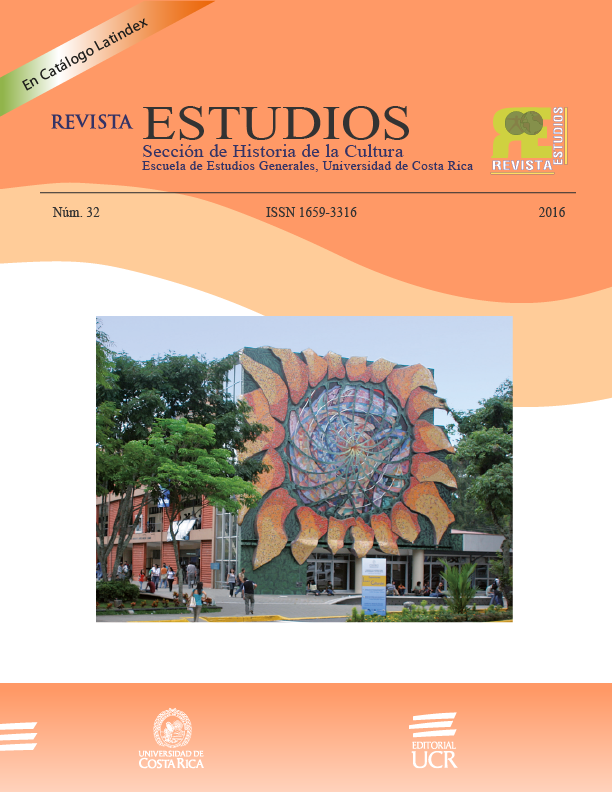Abstract
In the early 17th century, South India is a recent missionary frontier for the Society of Jesus. In regions marked by a weak political and military Portuguese presence, the Jesuits are in direct confrontation with the devil, whose presence is manifest in every moment. In their providentialist interpretation of history and the world, faith is without any doubt their first line of defense and the motor of their actions. At the same time, though, the missionaries have a trust in reason as an additional weapon against devilish plots and conducive to the conversion of souls. The cosmological disputes that they maintain with the “scholarly Brahmins” they meet, as we exemplify in this paper, clearly show that reason is considered as a universal (or say, intercultural) faculty, and that its “correct” application to the interpretation of the structure of the Universe is understood as a way of establishing dialogue with alterity.
References
Brockey, L. M. (2009). Journey to the East. The Jesuit Mission to China, 1579-1724. Cambridge (Mass.): Belknap Press.
Cervera, J. A. (2013). Tras el sueño de China. Madrid: Plaza y Valdés.
Charpentier, J. (1923). Preliminary report on the “Livro da Seita dos Indios Orientais”. Bulletin of the School of Oriental Studies, Vol. 2, 731-754.
Charpentier, J. (1933). The Livro da Seita dos Indios Orientais (Brit. Mus. MS. Sloane 1820) of Father Jacobo Fenicio, S. J. Uppsala: Almqvist & Wiksells.
Curto, D. R. (2012). Uma tipologia compósita do conhecimento imperial. História (São Paulo), Vol. 31, No. 2, 26-35.
D'Elia, P. M. (1960). Galileo in China: Relation through the Roman College between Galileo and the Jesuit scientist missionaries (1610-1640). Cambridge (Mass.): Harvard University Press.
Du Jarric, P. (1615). Thesaurus rerum indicarum, vol. III. Colônia: Petrus Henningius.
Ferroli, D. (1939). The Jesuits in Malabar, vol. 1. Bangalore: Bangalore Press.
Guerreiro, Fernão. (1605). Relaçam annal [sic] das cousas que fezeram os padres da Companhia de Iesus... nos annos de seiscentos & dous & seiscentos & tres. Lisboa: por Jorge Rodrigues.
Haddad, Thomás A. S. (2014). Filósofos naturais do demônio: astronomia, alteridade e missionação no sul da Índia, século XVII. História Unisinos (São Leopoldo, Brasil), Vol. 18, No. 1, 3-14.
Heras, Henry. (1927). The Aravidu dinasty of Vijayanagara. Madras: B. G. Paul & Co.
Jami, Catherine (2011). The Emperor’s New Mathematics. Western Learning and Imperial Authority During the Kangxi Reign. Oxford: Oxford University Press.
Jouvancy, J. (1710). Historiae Societatis Jesu pars quinta, tomus posterior (ab anno Christi 1591 ad 1616). Roma: Georgi Plachi.
Lorenzen, David N. (1999). Who invented Hinduism? Comparative Studies in Society and History, Vol. 41, No. 4, 630-659.
Müllbauer, M. (1851). Geschichte der Katolischen Missionen in Ostindien von der Zeit Vasco da Gamas bis zur Mitte des achtzehnten Jahrhunderts. Munique: Hübschmann.
Raj, K. (2007). Relocating modern science: Circulation and the construction of knowledge in South Asia and Europe, 1650-1900. Hampshire: Palgrave Macmillan.
Rodrigues, Francisco. (1934). O “Livro da Seita dos Índios Orientais”. Brotéria (Lisboa), Vol. 18, 39-44.
Rubiés, Joan-Pau. (2001). The Jesuit discovery of Hinduism. Antonio Rubino's account of the history and religion of Vijayanagara (1608). Archiv für Religionsgeschichte, Vol. 3, 210-256.
Thomas, Jérome. (2012). L’évangélisation des indiens selon le jésuite Acosta dans le De procuranda indorum salute (1588). Cahiers d’études du religieux. Recherches interdisciplinaires, Vol. 10, 2-21.
Wicki, Josef, ed. (1973). Tratado do padre Gonçalo Fernandes Trancoso sobre o hinduísmo (Maduré, 1616). Lisboa: Centro de Estudos Históricos Ultramarinos.
Wicki, Josef, ed. (1955). História do Malavar, de Diogo Gonçalves, S. J (ca. 1615). Münster: Aschendorffsche Verlagsbuchhandlung.
Zupanov, Ines G. (2005). Missionary Tropics. The Catholic Frontier in India (16th-17th centuries). Ann Arbor: University of Michigan Press.
Zupanov, Ines G. (2000). Lust, marriage and free-will: Jesuit critique of paganism in South India (Seventeenth Century). Studies in History (Nova Delhi), Vol. 16, 199-220.
Zupanov, Ines G. (1999). Disputed Mission. Jesuit experiments and Brahmanical knowledge in seventeenth-century India. Nova Delhi/Nova York, Oxford University Press

